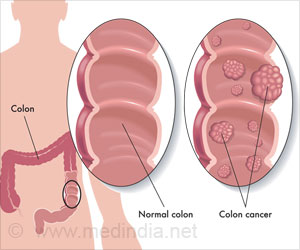- Colorectal Cancer Awareness Month is celebrated throughout March every year
- Raises awareness about the importance of screening in preventing colorectal cancer
- Aims to reduce the burden of colorectal cancer across the world
Read More..
Essential Aspects of Colorectal Cancer that Everyone Should Know
Colorectal cancer, as the name suggests, is a cancer of the colon (large intestine or large bowel) and rectum (a passage that connects the colon with the anus). Most colorectal cancers develop from polyps, which are abnormal outgrowths from the inner linings of the colon and rectum. These may later become cancerous if not immediately removed by surgery.The major risk factors for developing colorectal cancer include the following:
- Inflammatory bowel disease (Crohn’s disease or ulcerative colitis)
- Personal or family history of colorectal cancer or polyps
- Familial adenomatous polyposis (a genetic syndrome)
- Hereditary non-polyposis colorectal cancer (Lynch syndrome)
- Change in bowel patterns
- Persistent abdominal discomfort
- Rectal bleeding
- Weakness or fatigue
Colorectal Cancer Screening can Save Thousands of Lives
A screening test is used to detect colorectal cancer at an early stage before symptoms appear and is the best way to prevent it. Since colorectal cancer primarily develops from precancerous polyps, screening procedures such as colonoscopy, try to detect these polyps before they develop into cancer. Screening should start from the age of 50 and needs to be carried out at regular intervals, usually annually or longer. But sadly, over one-third of eligible adults don’t get screened.Some common screening tests are highlighted below:
Name of Screening Test | Frequency of Screening |
Fecal Immunochemical Test (FIT)
| Every year |
High-sensitivity Guaiac Fecal Occult Blood Test (HS-gFOBT) | Every year |
| Every 3 years |
Colonoscopy | Every 10 years |
Colorectal Cancer: Facts & Figures
The overall global statistics and India-specific statistics are presented below:Global Statistics
- Colorectal cancer is the 3rd most common cancer in men
- Colorectal cancer is the 2nd most common cancer in women
- 1.8 million new cases of colorectal cancer are reported annually
- Average lifetime risk of developing colorectal cancer is 1 in 24
- 71 percent of colorectal cancer cases arise in the colon
- 29 percent of colorectal cancer cases arise in the rectum
- Median age of diagnosis for colon cancer is 68 years in men and 72 years in women
- Median age of diagnosis of rectal cancer is 63 years for both men and women
- Colorectal cancer incidence and mortality rates are highest in African Americans
- Colorectal cancer incidence rates are 20 percent higher in blacks than whites
- Colorectal cancer death rates are 40 percent higher in blacks than whites
- First-degree relatives of colorectal cancer patients are at 2-3 times higher risk of developing the cancer
Indian Statistics
- Colon cancer is the 8th most common cancer in men
- Rectal cancer is the 9th most common cancer in men
- Annual incidence of colon cancer in men is 4.4 per 100,000 population
- Annual incidence of rectal cancer in men is 4.1 per 100,000 population
- Annual incidence of colon cancer in women is 3.9 per 100,000 population
Ways to Raise Awareness about Colorectal Cancer
There are many ways to raise awareness about colorectal cancer during the month-long celebrations. Some of these are briefly highlighted below:- Patient Outreach Programs: Colorectal cancer patient outreach programs can be conducted throughout the month of March to educate them and their caregivers so that they can better cope with the disease
- Colorectal Cancer Screening Camps: Free screening can be offered by clinics and hospitals for early detection of colorectal cancer. This will help to raise awareness about the importance of timely screening, especially among high-risk individuals
- Educational Programs: Educational activities could be organized to raise awareness about the risk factors associated with colorectal cancer and available screening options
- Social Media Campaigns: Posting informative news items, videos and infographics about colorectal cancer on social media platforms, such as Facebook, Instagram, Twitter, and LinkedIn will help to raise awareness about the disease. Clicking on the ‘like’ and ‘share’ button will help to spread the message far and wide
- Media Coverage: Media persons could be requested to cover the events on different media platforms throughout the month of March, showcasing the importance of early detection of colorectal cancer
- Real Life Stories: Patients should be encouraged to share their own experiences in fighting colorectal cancer. This will tremendously boost the morale of those living with colorectal cancer and provide renewed strength to battle the disease
- Newspaper Articles: Writing editorials, op-eds, and feature articles in local newspapers will help to generate awareness in the community
- Donations: Giving donations in cash or kind to charity organizations supporting awareness, education, health and research activities can make a world of difference to the lives of those living with colorectal cancer
- Wearing ‘Dark Blue’: ‘Dark Blue’ is the awareness color for colorectal cancer. Thus, wearing something in dark blue, such as a ribbon, lapel pin, hat, cap, T-shirt or any other apparel will show solidarity for those battling colorectal cancer, as well as raise much-needed funds for their treatment and welfare
Tips for Preventing Colorectal Cancer
- Learn about the signs and symptoms of colorectal cancer
- Look out for any early warning signs and consult a doctor immediately
- Know your family medical history
- Start getting screened from the age of 50 years
- Maintain a healthy weight
- Adopt a physically active lifestyle
- Eat a healthy diet – high in fruits, vegetables and whole grains
- Avoid red meat (mutton, beef, pork, lamb) and processed meat (bacon, sausage, cold cuts)
- Drink alcohol in moderation
So, on the occasion of Colorectal Cancer Awareness Month, let’s encourage people over 50 to get screened regularly to stop this silent killer, which usually presents symptoms when it’s too late!
References:
- Colorectal Cancer Awareness Month - American Society of Colon & Rectal Surgeons (ASCRS) - (https://fascrs.org/healthcare-providers/colorectal-cancer-awareness-month)
- Determine Your Risk and Practice Prevention - Colorectal Cancer Alliance - (https://www.ccalliance.org/colorectal-cancer-information/statistics-risk-factors)
- What is Colorectal Cancer Screening? - Centers for Disease Control and Prevention (CDC) - (https://www.cdc.gov/cancer/colorectal/basic_info/screening/)
- Colorectal Cancer - Prevent Cancer Foundation - (https://www.preventcancer.org/education/preventable-cancers/colorectal-cancer/)
- Colorectal Cancer Statistics - World Cancer Research Fund (WCRF) - (https://www.wcrf.org/dietandcancer/cancer-trends/colorectal-cancer-statistics)
- Consensus Document for Management of Colorectal Cancer - Indian Council of Medical Research (ICMR) - (https://www.icmr.nic.in/sites/default/files/guidelines/Colorectal%20Cancer_0.pdf)
Source-Medindia















